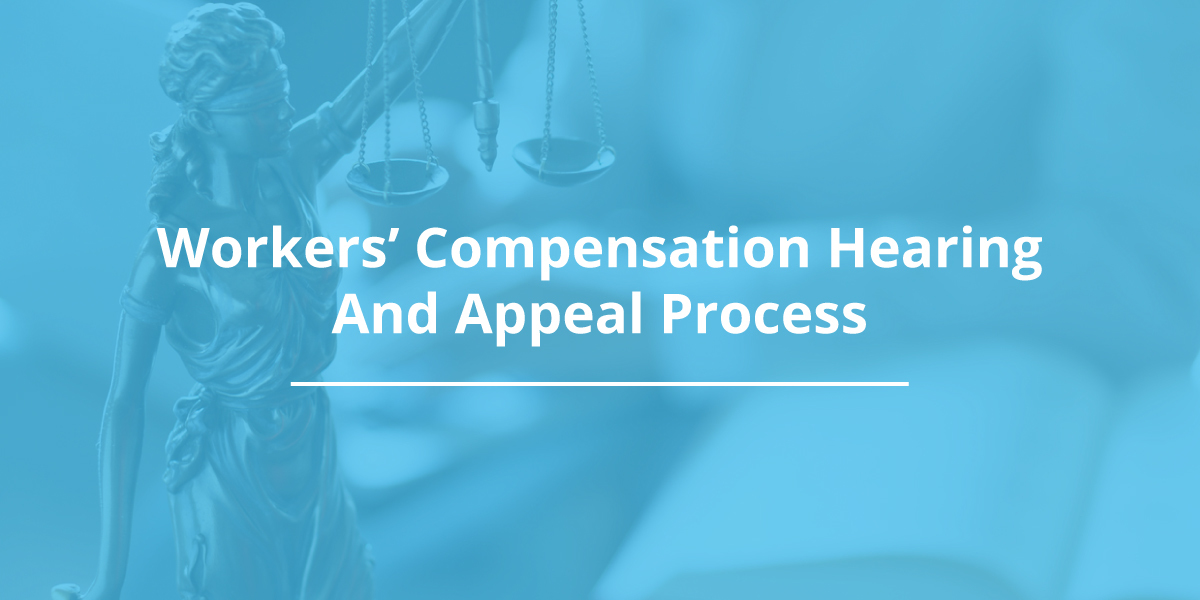
Workers’ compensation benefits pay for injuries sustained while on the job. Although many workers’ compensation claims are approved, some are denied. If your claim is denied, you will not receive the money needed to pay medical bills or compensate you for lost wages. Therefore, the only way you can get your benefits is to appeal the denied claim.
If your Workers’ Compensation claim is denied, you will receive a letter explaining the reason for the denial, as well as the period you have to file an appeal. You may want to talk to the claims examiner first before filing an appeal to see if there is anything you can do to get the claim approved. For example, is your claim missing paperwork or medical records?
If you do proceed with the appeal, you most likely will have to attend a hearing in front of the workers’ compensation advisory board or administrative agency. The process will depend on your state. In some states, a benefit review conference will take place to examine all the evidence. In other states, a judge may hear your case.
Workers’ Compensation Hearing Process & Why We Don’t Do Appeals
For over 30 years, I have been representing injured workers before the Virginia Workers Compensation Commission. Often, I get calls from injured workers asking me to review the adverse decision made by the Commission on their case to see if there is a chance to appeal it. Most of the time, I have to decline representation. These are the reasons why.
The Hearing
This is the most important event in the workers compensation process. You win or lose with what happens at the hearing. The injured worker has the burden of having to prove EVERYTHING. The injured worker has to know the laws, has to know what is important to submit as evidence, and what is important to say as testimony. The workers’ compensation insurance company and your employer will have an attorney representing them. It is actually the law that they MUST have an attorney. You must have the medical records as evidence that prove your case, you must have documentation that shows that you looked for employment, or if not, that a doctor has you out of work, and many more technical things depending on your case.
The Decision
The Deputy Commissioner does not make a decision at the end of the hearing on the day of the hearing. He reviews all of the medical records, refers to prior case law, and reviews the testimony that was presented at the hearing. Usually in two to three weeks, a written decision will be mailed to all the parties.
The Appeal
If either side disagrees with the decision, there is a right of appeal to have the Deputy Commissioner’s decision reviewed by the Full Commission which consists of three (3) Commissioners. Each side writes a legal brief saying why they should have won and quotes prior case law supporting their position. No “new” evidence is allowed. You do not get to get more medicals records or explain yourself more. On appeal, there are some standards the Commission has adopted over the years. One critical standard is that the Full Commission will almost never second-guess the original hearing Commissioner on credibility decisions. This is so because the hearing Commissioner is the only one who actually hears and sees “live testimony” and is able to consider the “demeanor” of the witnesses. Another critical standard is that the injured worker has the “burden of proof.” This means the injured worker has to prove at least by a preponderance of the evidence (at least 51%) that he/she should win. If the evidence is not there, or is incomplete, the claimant loses. If it is a “tie,” the injured worker loses.
My Review: Why Injured Workers Law Firm Does Not Do Appeals
Thus, if the claimant comes to me with an adverse decision based on credibility, I have to tell the claimant I decline representation due to the above Standard of Review. Also, if the claimant loses because the evidence is incomplete, I also have to decline representation because evidence cannot be added to the case on appeal. I get so disappointed since many times if I had been hired prior to the hearing, I could have won the case at the hearing level. I believe that it is a mistake to go to the hearing without any representation. There is never any substitute for not obtaining representation when your claim has been denied and a hearing is necessary.
This is my advice: Whenever an insurance company denies your claim, make sure to contact a workers compensation lawyer immediately.
About the Author: Michele Lewane
The Injured Workers Law Firm is a Richmond, Virginia based firm solely focused on serving clients with workers' compensation claims in Virginia. If you have questions about your benefits or if you would like more information on the Virginia workers’ compensation system, order our book, “The Ultimate Guide to Workers’ Compensation in Virginia” , or call our office today (804) 755-7755.


